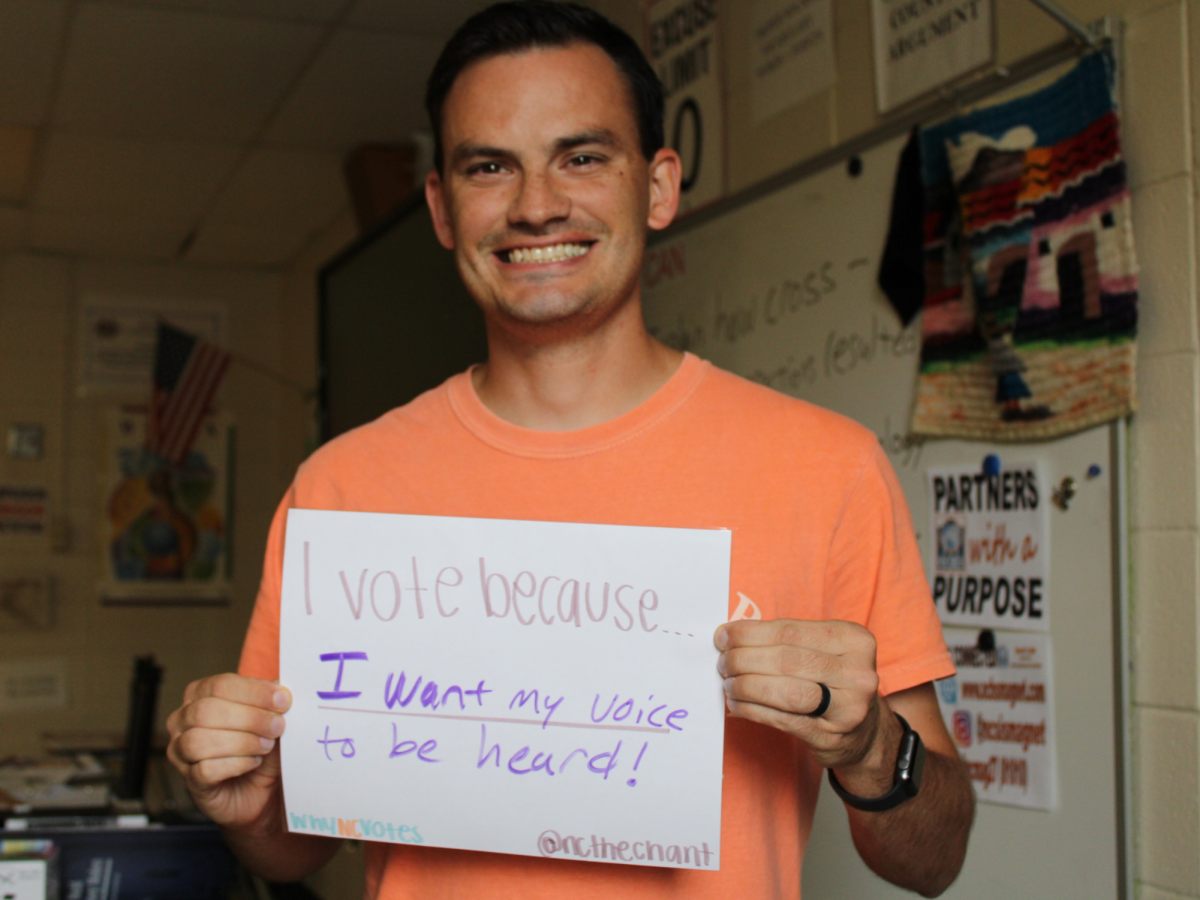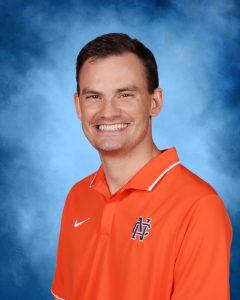
Ciara Whimbush
New Advanced Placement (AP) World History teacher John Mitchell recognizes that the right to vote does not always come as a guarantee in every society. Through his experience as a teacher, father and active participant in civic activities, he hopes to inspire his students who may not understand the importance of voting to register once they reach 18. “I vote because I feel like it's the best way for me to get my voice heard. Clearly, as a teacher we may go through greater measures than most do in terms of research of who we vote for; what’s great about voting for me is that I believe it's my way of deciding what is best for the future,” Mitchell said.
When humans settle into a new environment, psychology pulls individuals to settle and morph the space into an area that matches their personalities. Whether through decorating or meeting new neighbors, integrating oneself into a brand-new place provides a sense of excitement for what lies ahead. For NC’s new Advanced Placement (AP) World History teacher John Mitchell, Jr., that settling took the form of encouraging his newfound school community to vote. Similarly to the students who pass him in the hallways, Mitchell registered to vote as soon as he could during his senior year of high school; as he becomes increasingly familiar with NC’s student body, his understanding of the school’s political efficacy — the belief that an individual’s political action matters — grows exponentially.

Mitchell joins a substantial list of civically engaged millennials who show up to their local and national elections. In 2023, the news website Aristotle reported that millennials comprise up to one-fourth of the voter population; in the 2020 Presidential election, 65% of the 30 to 44-year-old demographic cast a ballot for a candidate. Regardless of the political party to which millennials support via their vote, the generation increasingly continues to show up at the ballot box alongside Generation Z (Gen-Z). As a millennial teacher who interacts with students in both Gen-Z and Generation Alpha, Mitchell aims to inspire a sense of collective togetherness in his age group and the young people he reaches daily.
As a world history educator, Mitchell understands the privilege of fair and free elections. In the beginning years of the U.S. citizens lived under tyrannical rule, where their voices did not matter in the eyes of their leaders. Upon a reflection on his studies, Mitchell calls upon the ways that ancient Greeks and Romans conducted direct elections for the first forms of a republic in their societies, and how that has morphed into our modern democracy. In his role as a teacher, he sees these democratic foundations spring up in his job daily — from how classrooms operate to the ways that businesses function, Mitchell feels the presence of democracy in several aspects of his life.
Ultimately, Mitchell believes that a significant component of voter participation lies in the importance of the individual acting in pursuit of the whole. The teacher believes that people may become lost in the grandeur of the election process and could absorb an attitude that one minuscule vote does not carry significant weight. Mitchell proposes a change in attitude and urges people to view voting as a distinct advantage of living in the free world. He believes that regardless of an election’s outcome, the act of projecting one’s voice into the political atmosphere stands as beneficial because citizens can showcase their desires and hopes for the country in which they live. By focusing on the collective benefit that an equitable election allows, Mitchell hopes that the ever-evolving American society can expand their perspectives on how deeply their votes matter. His faith in democracy, belief in progression and desire for a brighter future helps to ensure that a history of voter suppression does not repeat itself.
“I think one of the bigger things to note about getting the chance to vote is essentially getting the opportunity to speak your mind about changes or continuations in policy. You vote for something so much broader than yourself. You vote for what you feel is best for the future, best for the next four to possibly eight years. Typically, I vote for what I feel is best for the future, and with having children, what I feel is best for them and their future. People may vote for a litany of other reasons, but mainly for me it’s gotta go off of the family and what I feel is best for them,” Mitchell said.
